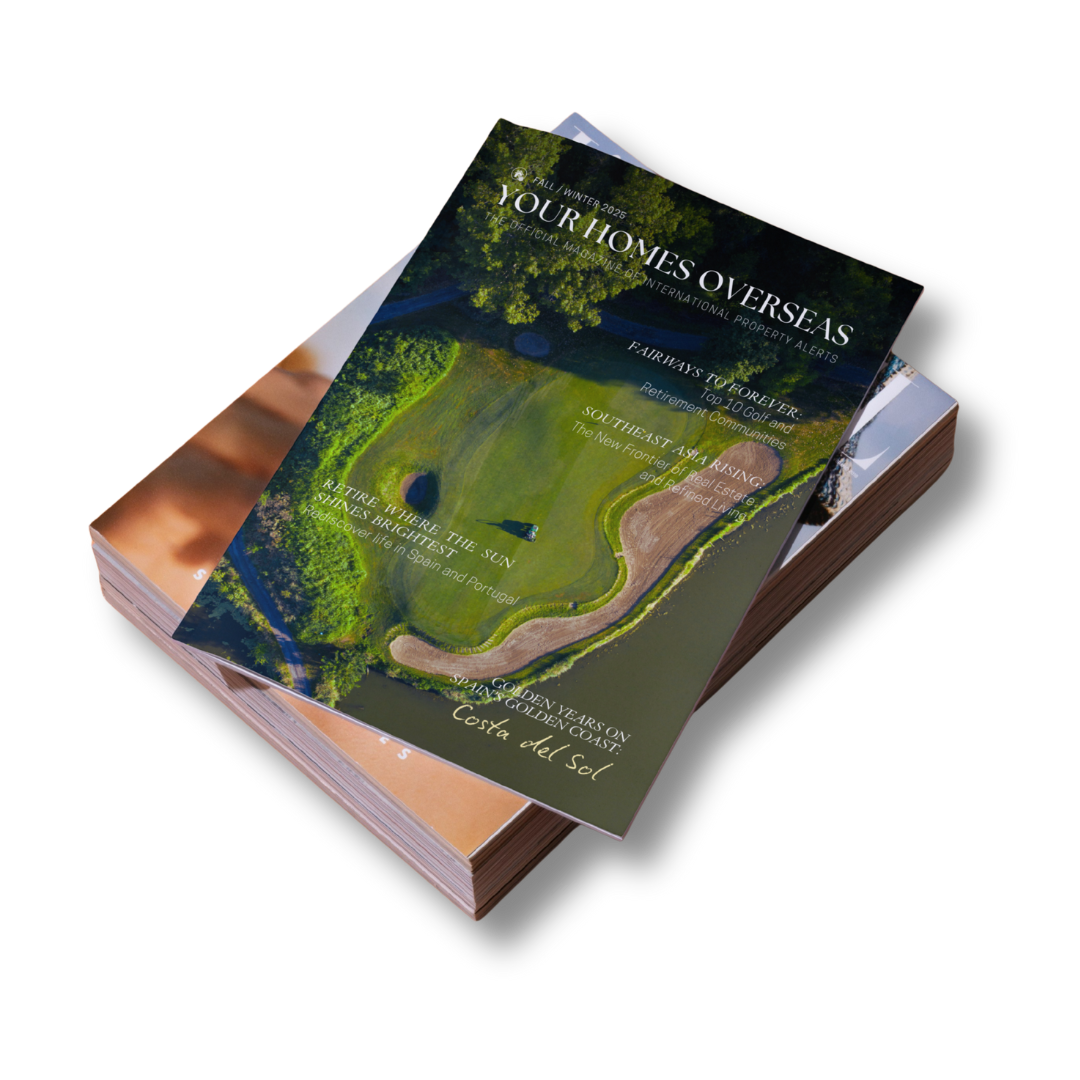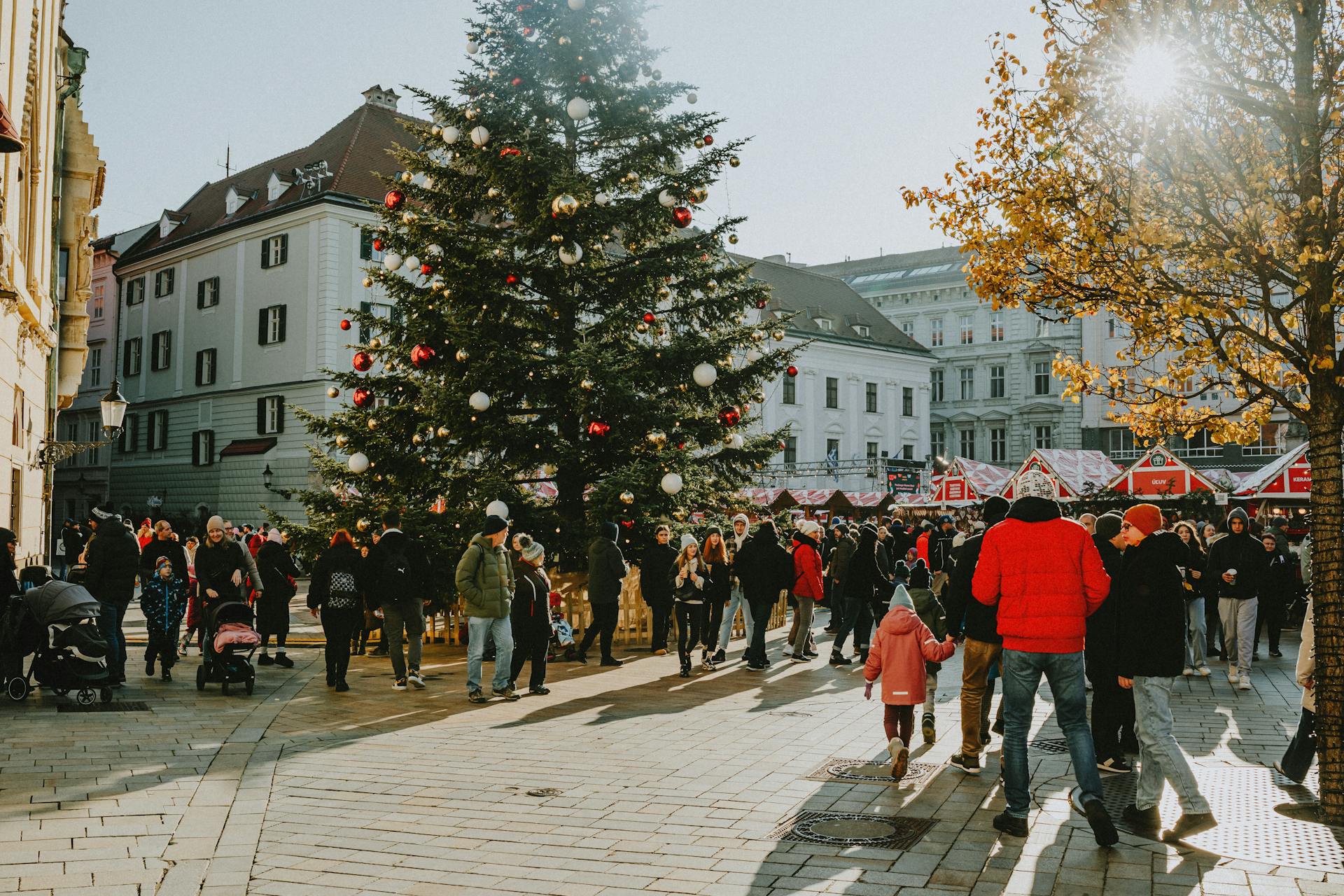
Get Your Free 1st Issue
Your Homes Overseas Magazine!
Discover the best destinations, property tips, and lifestyle insights from around the world.
GET YOUR FREE MAGAZINE HERE!

Discover the best destinations, property tips, and lifestyle insights from around the world.
GET YOUR FREE MAGAZINE HERE!

Tradition in Spain is all about the ways people celebrate their culture, from local festivals to family meals and holiday events. These traditions are often joyful, filled with music, food, and stories that bring people together. Many of them have been passed down for hundreds of years. They help everyone feel proud of their roots and stay connected to their history.
You’ll find these customs in daily life and big national celebrations. They shape how people live, what they eat, and how they gather as a community. At International Property Alerts, we help you explore these traditions, so you can better understand and enjoy the Spanish way of life.

Tradition in Spain is not only about big holidays. It also shows in small things people do every day. For instance, families often eat together and enjoy slow meals. These simple habits bring people closer and make family time important.
Many people know about the siesta tradition in Spain. This short rest after lunch is a quiet time in many towns. In other words, it’s a break that helps people relax and feel better during the day. That’s why siesta was a popular tradition in Spain in the first place.
Spaniards enjoy events that match the time of year. For example, the 12 grapes tradition in Spain makes New Year’s Eve fun and lucky. Also, the new years tradition in Spain brings families and friends together at midnight to start fresh.
Many holidays come from faith and history. The three kings tradition in Spain is one of the biggest for kids. In addition, the three wise men tradition in Spain includes parades, gifts, and happy moments families share every January.
The three wise men tradition in Spain is a fun way for kids to get gifts after Christmas. For instance, families place shoes outside and wait for candy or toys. Streets are filled with music and happy crowds.
The three kings tradition in Spain is full of joy and togetherness. Families wait for this day because it feels like another Christmas. People share a sweet round cake that hides a small toy inside. Also, whoever finds the toy wears a crown and becomes “king” for the day.
Many people enjoy the tradition in Spain for Christmas, which mixes food, family, and faith. In addition, homes glow with lights, and churches welcome everyone to join in. Each city adds its own special twist.
Religious events in Spain help families stay close. In other words, these moments are not just about faith, but also love and bonding. People tell old stories and eat meals passed down from grandparents. Children learn values by watching what their parents and grandparents do.
If you want to learn more about culture and daily life, read our full country guide in Spain. Above all, it helps you understand how tradition in Spain brings meaning to each season.
The 12 grapes tradition in Spain is a fun way to welcome the new year. For instance, people eat one grape for each of the twelve clock chimes at midnight. Everyone tries to eat them fast while making a wish with each one. This makes New Year’s Eve exciting and full of laughs.
The new years tradition in Spain is not just about fireworks—it’s about being together. After that, families hug, toast with sparkling drinks, and wish each other good luck. Some even wear red or yellow clothes to bring love or money. Everyone starts the year with joy and hope.
Spaniards like to celebrate with the people they love. In addition, big meals and happy music fill homes as the old year ends. Families often sit around the table for hours. Laughter, stories, and hugs make this time special.
New Year’s customs show how much people value fun, food, and family. Therefore, learning about these habits helps you feel closer to the culture. If you’re curious about how locals live, check out our services to learn more.

The halloween tradition in Spain is more about honouring the dead than spooky costumes. In other words, families visit graves, light candles, and leave flowers. It’s a quiet and respectful time. Kids still enjoy sweets, but it’s not as scary as in other places.
Every city in Spain has its own way of celebrating. Also, the tradition in Spain may look different in the north than in the south. Some towns have parades, while others have food festivals. People are proud of their local customs.
In Seville and Catalonia, many local celebrations happen near areas known for lively markets, family homes, and even popular spots for real estate in Spain . Therefore, these traditions are easy to experience if you live nearby. Below are a few examples:
The siesta tradition in Spain began because of the hot weather and long workdays. So, people would rest after lunch to stay cool and feel better later. Shops and schools used to close for a few hours. This break helped many stay healthy and focused.
Even today, some still ask why was siesta a popular tradition in Spain, especially in small towns. In other words, this habit is part of daily life in quiet areas. Not everyone naps now, but many still enjoy a short rest. It helps balance busy days.
In big cities, people have faster routines. Also, long breaks are rare because work and school move quickly. But in rural places, people still follow old customs. These spots keep tradition in Spain alive through peaceful, slower living.
Many homes are built near markets, plazas, or cafes where old habits still happen. Therefore, homes listed under our properties often sit near places that reflect true Spanish life. Locals gather for food, stories, and laughter. These daily moments show culture in real time.
The love for cooking shows through tradition food in Spain. For instance, each dish tells a story from different regions. Some foods are eaten daily, while others are saved for parties and holidays. Families often pass recipes from one generation to the next.
Spanish meals are more than just food—they create memories. Also, during holidays or festivals, people gather to eat and enjoy company. Sharing food shows love and care. This makes tradition in Spain rich with flavour and feeling.
Many travelers feel amazed when they first see a tradition in Spain. After that, they hear church bells, see street parades, or enjoy local music in the plazas. New sights, sounds, and smells fill each day with joy. They start to understand how strong and lively the culture is—a lifestyle often admired by those exploring the best international property listing websites.
Expats often enjoy joining local events and daily customs. Also, small things like saying hello or sharing meals help them feel welcome and part of the group.
In quiet towns, people still follow old customs. In other words, daily life feels calm, with time for rest and long talks. Food is fresh, and people often eat together outside. This makes traditional food in Spain feel more special than a quick snack or meal.
Living in Spain teaches you to slow down and enjoy the moment. Therefore, people notice the value of kindness, patience, and simple joys.
Tradition in Spain shows how everyday life is filled with meaning, joy, and togetherness. In addition, each custom, from holiday meals to local dances, brings people closer. You’ll find both quiet village habits and big city parades, each sharing a piece of Spain’s heart. The beauty of these traditions is that they continue to grow while still keeping their roots.
At International Property Alerts, we believe learning about culture helps you feel more at home, whether you’re visiting or moving. So, if you’re ready to start your journey, feel free to contact us for more helpful tips and guidance.
Tradition in Spain means the ways people celebrate culture through food, family, and festivals. For instance, it includes daily habits, religious holidays, and seasonal events. These customs help people feel proud of their past and stay close to each other.
People once took siestas to rest during hot afternoons. Also, it helped them feel better and work longer with more energy. In some towns, this peaceful habit still continues today.
Spanish families enjoy special meals during holidays like Christmas or New Year. In addition, they eat paella, tapas, and churros at home or with others. Food is a big part of every celebration.
Kids enjoy events like the three wise men tradition in Spain and three kings tradition in Spain. Therefore, they often receive gifts, eat sweets, and watch parades. These joyful moments help them connect with culture early.
Many visitors join local events and enjoy learning the customs. In other words, sharing meals or watching parades makes them feel included. These simple acts help them feel at home in a new place.
About International Property Alerts
International Property Alerts is a premier global platform connecting real estate investors with handpicked opportunities in emerging and lifestyle-driven markets. Through curated listings, expert guidance, and market insights, we help buyers make confident property decisions worldwide.
Media Contact:

Phone: +4477 1923 8132
📱 WhatsApp: +63927 073 9530
Email: office@internationalpropertyalerts.com

Elle Resort & Beach Club offers a rare chance to own property in one of the most desirable coastal locations. With limited units, strong capital growth potential, and unmatched resort facilities, this is your opportunity to secure a beachfront lifestyle with long-term value.

Thinking about buying property abroad? Don’t make the move without the right knowledge. Our Free Buyers Guide gives you essential insights on legal steps, taxes, financing, and the best markets worldwide. Trusted by international buyers and investors.

Wake up to bright, spacious living with stunning views and modern comforts. Whether for family living, retirement, or a stylish retreat, Sudara Residences makes your dream home a reality

Discover curated property listings with IPS—residential, commercial, villas, land—and get expert guidance through every step.
BONUS: FREE Cambodia Buyer’s Guide

High visibility. Targeted audience. Maximum exposure. Rent this space and let your brand shine.

Get your properties in front of high-intent investors. Showcase your listings to buyers worldwide.

From pounds to pesos, yen to dollars. ⚡ Quick. Easy. Secure.
Compare listings
ComparePlease enter your username or email address. You will receive a link to create a new password via email.